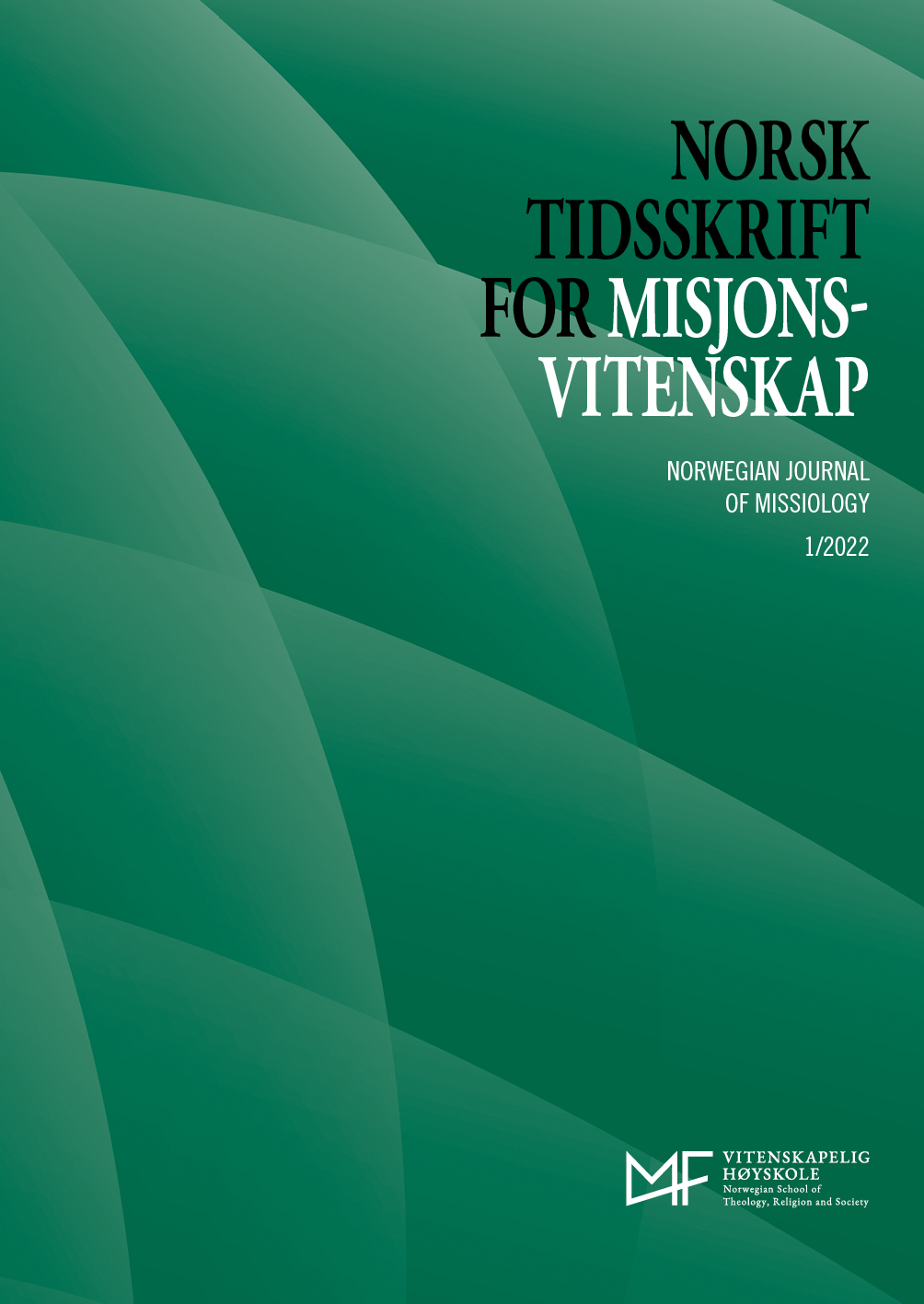Den norske kirke og International Council on Christians and Jews: Dialog for anti-misjon?
DOI:
https://doi.org/10.48626/ntm.v76i1.5488Abstract
Den norske kirke omtaler International Council of Christians and Jews (ICCJ) i sin Midtøsten-strategi. ICCJ er det sentrale multilaterale organet for jødisk-kristen dialog på høyt nivå, men det finnes i tillegg en rekke bilaterale dialoger. Det overordnede bildet er at til tross for viktige tilnærminger mellom jødiske og kristne ledere over mange tiår, er det spenninger i den jødisk-kristne dialogen, også i Norge. I tillegg til uenighet om flere forhold knyttet til Palestina/Israel-konflikten er det ett spørsmål som skaper spenninger, nemlig spørsmålet om misjonsinnsats overfor jøder. Den sterkere oppmerksomheten på misjon hos den evangelikale bevegelsen er bare en av grunnene til at denne bevegelsen er mer interessant å studere enn protestantiske og økumeniske organer. Det er relevant å være klar over både den sentrale rollen Evangelische Kirche Deutschland (EKD) har i protestantiske og økumeniske fora, og den tydelige avstandstaken fra alle «anstrengelser» for å få jøder til å endre religion som EKD-synoden uttrykte i 2016. Artikkelen viser at det er World Evangelical Alliance (WEA), som blant annet omfatter Norsk Råd for Misjon og Evangelisering (NORME), som i størst grad har fått kritikk fra ICCJ for hvordan de formidler synet på at jøder trenger Jesus som sin frelser. Den andre store evangelikale bevegelsen, Lausanne-bevegelsen, har ikke vesentlig forskjellig vektlegging enn WEA, men har likevel sluppet tilsvarende kritikk fra ICCJ. ICCJ må forstås som å kun avvise organisert misjonsinnsats.
Nedladdningar
Statistik
##submission.downloads##
Publicerad
Nummer
Sektion
Licens
Copyright (c) 2022 Norsk tidsskrift for misjonsvitenskap

Detta verk är licensierat under en Creative Commons Erkännande-Ickekommersiell-IngaBearbetningar 4.0 Internationell-licens.
Norsk Tidsskrift for Misjonsvitenskap er i dag et digitalt tidsskrift som er tilgjengelig gratis for alle. Artikler gjøres offentlig tilgjengelige med en såkaldt Creative Commons lisens CC BY-ND på tidsskriftets hjemmeside. Dette innebærer at alle står fritt til å gjenbruke artikkelen under forutsetning av at opphavspersonen blir navngitt.





